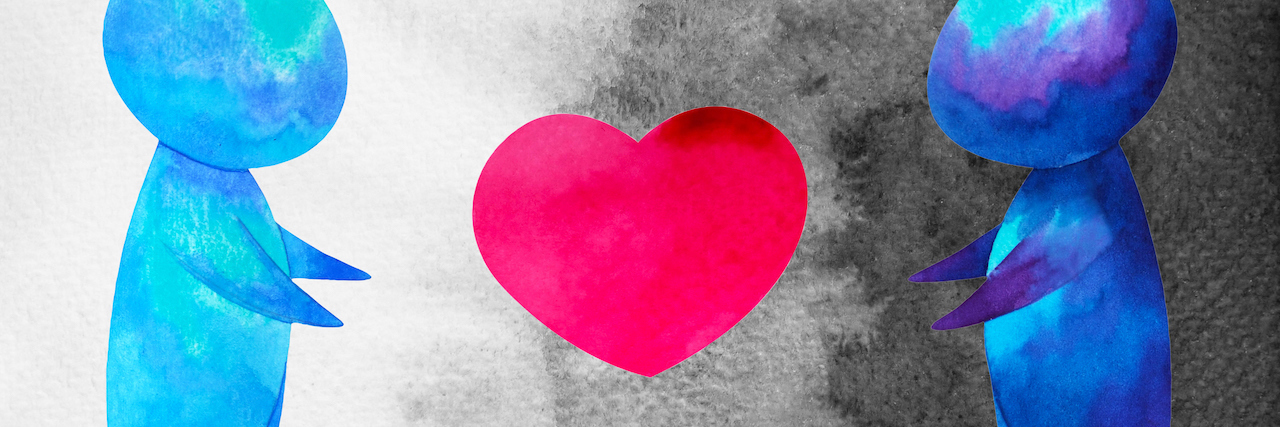How Might COVID-19 Affect the Suicide Rate?
Editor's Note
If you experience suicidal thoughts or have lost someone to suicide, the following post could be potentially triggering. You can contact the Crisis Text Line by texting “START” to 741741.
Amanda Tuggle knows about living with depression and post-traumatic stress disorder (PTSD). But before the pandemic, she said things were under control. Weekly therapy sessions and group therapy helped her keep a handle on things. Now, everything has changed. “I couldn’t go to my weekly sessions and things started to spiral out of control for me when everything started to shut down. I’m still trying to fight my way out of the darkness.”
The coronavirus pandemic has brought forth increasing concerns about the state of mental health in the United States. One study showed that 1 in 3 Americans now show clinical signs of anxiety or depression. Even former First Lady Michelle Obama recently expressed feeling “low-grade depression” since the shutdown.
But for those who have been experiencing mental illness for some time, there are growing fears that the effects of the pandemic could increase the risk of suicide. Though COVID-19 has caused major stress on people around the globe, it’s important to remember an increased suicide rate isn’t a forgone conclusion. It’s too early to truly understand COVID-19’s impact on the suicide rate.
Here’s what we know so far, including reasons to have hope.
USA Today recently reported that one survey showed call centers under the National Alliance on Mental Illness (NAMI) have seen a 65% increase in calls. But the strain of the pandemic on mental health also seems to be hitting some areas harder. One Michigan news station reported that some call centers had seen a 300% increase in call volume.
In Los Angeles, one hotline took 22 callers in February 2020. The following month? The number soared to 1,800.
Courtney Davenport, a licensed social worker in Sarasota, Florida, said the effects of the pandemic on her clients’ well-being was dramatic in some cases. “Clients who have never previously reported any suicidal ideation were now talking about it. I had two clients voluntarily admit themselves to the psychiatric facility because of suicidal urges.”
Davenport said the switch to virtual therapy has cut the only in-person connection some of her patients had. “I do video sessions or phone sessions but for a lot of clients coming into the actual office, the safe space that has held them and sitting across from me, is a very important part of the therapeutic process,” she said.
Davenport said since June, she has brought back about half of clients back in-office and put in social distancing regulations. “They do seem to be doing a lot better now that they are coming to the office for their therapy sessions once or twice a week. So that’s been good to observe.”
The CDC’s most recent data backs up what mental health professionals are seeing in practice. According to the agency, a June survey of adults showed 10.7% had seriously considered suicide in the last 30 days — this number compares to 4.3% in a 2018 survey referring to the previous 12 months.
In Japan, however, the numbers seem to be telling a different story. One report by The Guardian showed the suicide rate had fallen. Experts attribute the decline to decreased stress factors such as school and work as well as a shift in focus to family life. Previous research also suggests events that bring people together (like natural disasters or 9/11) can build a sense of connection that protects against mental health issues.
We spoke to Amy E. Green, Ph.D., director of research at the Trevor Project, an organization dedicated to preventing suicide among LGBTQ young people. She said that social isolation does not have to always equal a loss in connection. “Social support and positive connections are strong protective factors and vital for suicide prevention. The increased use of virtual meeting platforms provides evidence that people are still seeking those affirming connections and support networks. While COVID-19 may increase stress for some, for others it may reduce stress.”
As we enter National Suicide Prevention Month, one thing is certain. People are talking about mental health perhaps more openly than ever. The effects of the pandemic are global and right now, it’s something we all have in common. Green said, “It’s important to note that suicide is preventable, which can include an approach that looks to identify and reduce risk factors while increasing protective factors.”
For Tuggle, it’s her babies who keep her going. “I read a lot and spend every moment I can with my kids. My two kids are my guiding light.”
For more on how to cope with the mental health impact of COVID-19, check out these other Mighty articles:
- Don’t Let Shame Stop You From Taking Care of Your Mental Health During COVID-19
- 5 Tips for Coping With Borderline Personality Disorder Through COVID-19
- What to Do If COVID-19 Information Is Affecting Your Anxiety
- 6 Ways Having a Mental Illness Has (Surprisingly) Helped Me During the COVID-19 Outbreak
Header image via Benjavisa/Getty Images

